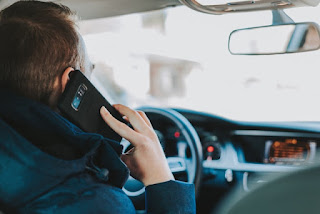Lesser known French rules of the road you need to follow
1. French Roundabout Rules
Priority to Vehicles Inside:
Vehicles entering a roundabout must yield to those already circulating. This is standard, but in rural areas, watch for signs like "Priorité à droite" (priority to the right), where vehicles entering from the right may have priority.
Common Mistake: Assuming all roundabouts follow the same rules as in the UK (e.g., signaling on entry). In France, signal only when exiting.
Signaling:
Use your right indicator just before your exit to alert others. Do not signal when entering.
Exception:
On very large roundabouts (like the Arc de Triomphe in Paris), follow directional signs and lane markings.
Lane Discipline:
Right lane: For exits 1 (first exit) or 2 (straight ahead).
Left lane: For exits 3 (left) or full U-turns.
Tip: Avoid switching lanes mid-roundabout; French drivers
are strict about lane adherence.
2. Speed Enforcement Cameras
Types:
Fixed cameras (Radars Fixes): Often placed after speed limit signs or hidden in roadside boxes.
Mobile cameras (Radars Mobiles): Handheld devices used by police or mounted in unmarked vans.
Average-speed zones (Radars Tronçons): Common on autoroutes; cameras track your time between two points.
Private radar cars: Operated by contractors; fines are still
valid.
Tolerance:
≤ 100 km/h: Fines start at 5 km/h over.
> 100 km/h: Fines start at 5% over the limit.
Penalties:
Minor speeding: €68–€135.
Severe speeding (>50 km/h over): Up to €1,500, license suspension, or vehicle confiscation.
Status: Mandatory law was scrapped in 2020, but carrying an NF-certified breathalyser (available on Amazon/ferry shops) is still advised.
Why?: If stopped, police may ask you to self-test. Refusal could lead to suspicion of drink-driving.
Blood Alcohol Limit: 0.05% (lower than the UK’s 0.08%).
Rule: Holding a phone while driving is illegal. Hands-free systems (e.g., Bluetooth) are allowed.
Penalty: €135 fine + 3 penalty points (on a French license).
Loophole: You can use a phone if parked with the engine off.
Daytime: €130–€200 (depending on vehicle size).
Night/weekends: €200–€300+.
Process:
Use orange emergency phones on autoroutes for free recovery to a safe area.
If using a private recovery service, confirm costs upfront.
Breakdown Cover:
European Cover: Essential for towing, repairs, and accommodation. Providers like AA/RAC offer policies.
Rule: Illegal to wear any device covering both ears (even for calls/music). Single earbud is technically allowed but discouraged.
Penalty: €135 fine.
Alternative: Use vehicle speakers or a fully hands-free system.
7. Civil Enforcement
On-the-Spot Fines:Who Can Fine You?: Police, gendarmes, or municipal officers.
Non-residents must pay immediately (credit card preferred).
Unpaid fines may lead to border checks or future travel issues.
Language: Fines are issued in French, but officers often explain in basic English.
Zones:Cities Requiring Them: Paris, Lyon, Grenoble, Strasbourg, Toulouse (around 45 more added in 2025)
How to Buy: Apply online at the official portal (€3.70 + postage). Delivery takes ~30 days.
ZCR (Permanent zones): Sticker required always.
ZPA (Temporary zones): Activated during high pollution.
Penalty: €68–€180 for non-compliance.
9. "Black Saturdays" (Samedis Noirs)
Dates: Peak Saturdays in July/August (e.g., Bastille Day
weekend).
Routes Affected: Major autoroutes (A6, A7, A9) toward the Alps/Mediterranean.
Advice:
Travel before 7 AM or after 7 PM.
Use traffic apps like Bison Futé (www.bison-fute.gouv.fr) for real-time updates.
10. Pre-Trip Checklist
Documents:
Safety Equipment:Full UK driving license (no paper counterpart needed).
V5C logbook (if renting, carry the rental agreement).
Insurance certificate (check it covers France).
Vehicle Prep:Mandatory: Reflective jacket (within reach, not in the boot), warning triangle.
Recommended: Spare bulbs, first-aid kit.
Headlamp beam deflectors (for UK cars).
Clean Air sticker (if visiting cities).
11. European Breakdown Cover
Why You Need It:
Options:Covers repatriation, accommodation, and onward travel if your car can’t be fixed.
Avoids language barriers with local garages.
Basic: Towing to a garage.
Comprehensive: Includes car hire, hotel costs, and repatriation.
Key Tips for Driving in France
Speed Limits in Rain: Reduce speed by 10–20 km/h on wet roads.
Tolls: Autoroutes (A-roads) are tolled; keep a credit card handy.
Fuel: Diesel is marked Gazole; unleaded is Sans Plomb 95/98.
Low Emission Zones: Expanding to 45+ cities by 2025.
For official updates, visit:
Sécurité Routière (French road safety).
UK Gov France Driving Guide.
This blog is only a guide and European travel rules change frequently. Always check and verify with your own sources.








.jpg)

No comments:
Post a Comment